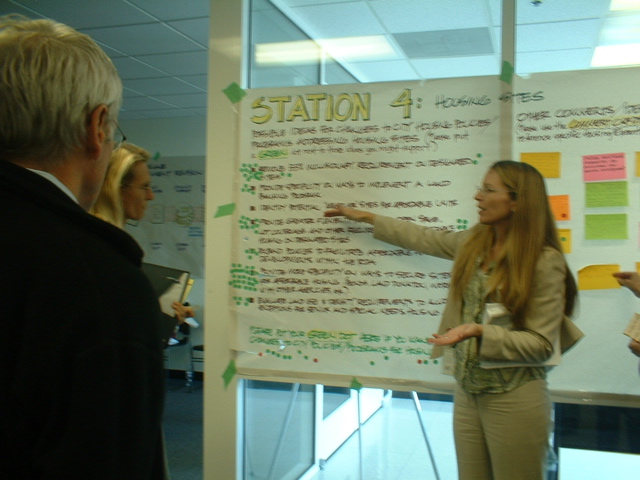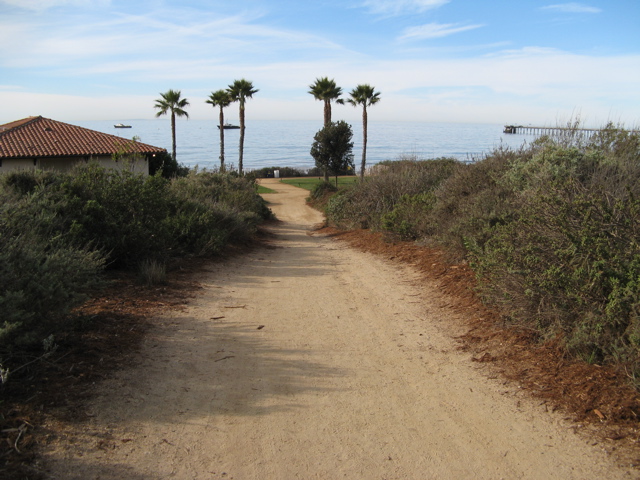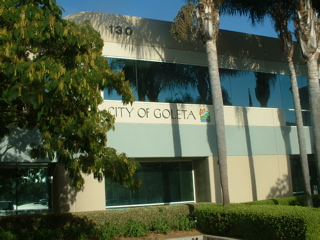Just Say “No” – Again – to Goleta General Plan Amendments
Keep the Shalls as Shoulds, Preserves as Protects, and Save Goleta

In 2006, a new Goleta City Council majority was elected, in part based on their claims that Goleta’s General Plan did not reflect the true wishes of Goleta residents and that it had to be changed. Early in 2007, the city’s planning staff was authorized to conduct a process to “open up” the General Plan to consider amendments originated mostly by land owners, developers, and special interest groups. The council allocated more than $350,000 for staff support and workshops for public input, plus environmental analysis. Since then, the public’s input has shattered the notion that there is discontent with the current plan, as the information below illustrates. It is time to move on.
Over the course of five public workshops during this past summer and fall, staff presented 77 potential amendments to the General Plan, including 33 proposed by the Bacara Resort. After the workshops, it seemed to many of us who attended that the overwhelming number of participants had strongly opposed changes to the existing plan.
So I was puzzled when staff issued its report last month, again recommending many of the changes that had seemingly been overwhelmingly rejected by session attendees. (The staff report can be found by clicking here.) Fifty pages into the 325-page staff report, I saw that staff was still recommending substituting some occurrences of “should” for “shall” and “protect” for “preserve.” Just these changes would give staff and the City Council less guidance and more latitude in departing from the express vision and desires of Goleta residents.
I was also perplexed to again find recommendations to ease restrictions on future regional big box developments in Goleta, to allow for “time shares” at Bacara, to restrict public access to Haskell’s Beach, and to reduce environmental protections. These are some of the same changes that had seemingly been roundly rejected by participants at the fall workshops.
For a “reality check,” a few friends and I decided to review and “score” the testimony regarding proposed plan changes. Fortunately, extensive records of the written and oral testimony are available online and in print. (All of the following excludes the workshop and testimony on the Housing Element.)
Written testimony is the most trustworthy because it contains the senders’ names, does not depend on interpretation by a facilitator, indicates if a person or entity is simply repeating the same comments over and over, and can be submitted by anyone without having to attend a workshop. About 140 written comments specific to proposed amendments were submitted by individuals and organizations.

Here are the “highlights” from all the written comments for some of the major categories of proposed changes:
• changing “shall” to “should”: 84 opposed – 6 supported
• changing “preserve” to “protect”: 41 opposed – 1 supported
• changes allowing more regional big boxes: 48 opposed – 3 supported
• changes proposed by Bacara: 73 opposed – 2 supported
• changes that reduce environmental protections: 60 opposed – 3 supported.
We also scored the approximately 50 summaries of oral testimony specific to proposed amendments at the workshop public comment periods and here is what we found:
• changing “shall” to “should”: 25 opposed – 5 supported
• changing “preserve” to “protect”: 16 opposed – 2 supported
• changes allowing more regional big boxes: 23 opposed 2 supported
• changes proposed by Bacara: 17 opposed – 2 supported
• changes that reduce environmental protections: 23 opposed – 2 supported.
As part of the workshops, multiple facilitators at about 10 “issue stations” simultaneously tried to record individual comments on flipcharts. Summaries of these flipcharts are available, but due to their volume, it is virtually impossible to quantify the results.
And scoring flipcharts seemed of questionable value. The results could be skewed because these comments were made only by people who could attend in person and were made anonymously, thus could be made several times by the same person. While we did not “score” summaries of the flipcharts, my experience was that more workshop participants seemed to oppose plan changes than support them.

A General Plan is supposed be a reflection of the community’s wishes and a guide for the future. Following the process designed and implemented by planning staff, workshop participants have expressed and documented their wishes loudly and clearly that the plan should not be changed. The allegation that the existing General Plan did not reflect the will of a large portion of Goleta residents has been firmly rebutted. In light of the overwhelming opposition to the proposed amendments, as illustrated above, it is difficult to understand why these changes continue to be recommended in the current staff report.
At a Special City Council Hearing at 6:30 p.m. on Thursday, January 17, the community has one more chance to stand up and be counted. We need to let our council know that the latest staff recommendations do not reflect the community’s wishes.
It is time to call for an end to this prolonged exercise.
Guest columnist George Relles has lived in Goleta for 18 years.



